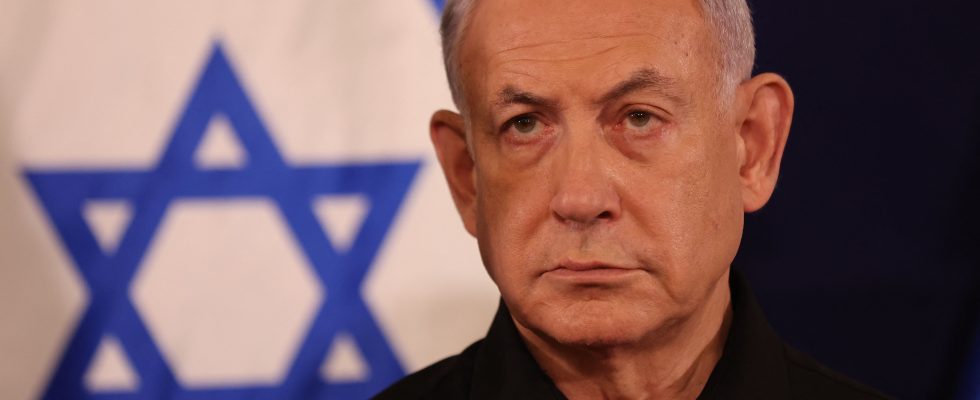It was the last major city that the Israeli army had not yet entered. It is now done. On the night of Sunday February 11 to Monday February 12, the town of Rafah, in the south of the Gaza Strip, suffered a series of airstrikes at the same time as an incursion by an Israeli army commando.
An operation which allowed the release of hostages kidnapped on October 7 in kibbutz Nir Yitzhak. Two men, Fernando Simon Marman, and Louis Har, aged 60 and 70 respectively, who were taken to the Sheba Medical Center, in the suburbs of Tel Aviv, for initial medical examinations.
But the operation would have also caused the death of around a hundred Palestinians, according to figures communicated by the terrorist organization Hamas. Civilian losses anticipated by the international community, which had been worried for several days about the consequences of such a military maneuver.
Neutralize the “last bastions of terrorists”
The specter of an expansion of the Israeli response to Rafah arose on Wednesday February 7, while IDF soldiers continued to carry out fighting in Khan Younes, north of Rafah. In a televised address, Israeli Prime Minister Benjamin Netanyahu announced that he had called for the preparation of a military operation in the southernmost town of the Gaza Strip where, according to him, “the last terrorist battalions of Hamas” are hide. But where have also taken refuge nearly 1.3 million Palestinians who fled the north of the Gaza Strip at the start of the conflict.
On Sunday February 11, the terrorist organization denounced an operation which would cause a “humanitarian catastrophe” and a “massacre which could lead to tens of thousands of martyrs and wounded”. And Hamas warns: any military movement on Rafah would “threaten” the ongoing negotiations for the release of hostages.
An operation that arouses unease among Israel’s allies
Abroad, concern about the consequences of the offensive is growing among Israel’s closest allies. On Sunday, Joe Biden, whose undeniable support for Israel has been repeatedly criticized, urged Benjamin Netanyahu not to launch a military operation on Rafah without “a credible and feasible plan”. Already on Thursday February 8, the President of the United States opposed “a response” deemed “excessive”. This, despite the Israeli Prime Minister’s commitment to offer “safe passage for the civilian population so that they can leave”,
Same story from the Quai d’Orsay, which criticizes “an operation which would create a catastrophic humanitarian situation of a new dimension and unjustifiable”. On Sunday, in a press release, the French Ministry of Foreign Affairs expressed “its deepest concern” about the humanitarian situation of civilian populations a few hours after the first Israeli strikes in Rafah. “Vital crossing point to deliver humanitarian aid for the population of Gaza.”
But for Benyamin Netanyahu, the slogan remains the same: destroy Hamas. This, whatever it costs. “Capitulate to the delusional demands of Hamas […] not only will it not lead to the release of the hostages, but will lead to another massacre, and a disaster for the State of Israel that none of its citizens is prepared to accept,” he insists.
Three terrorists killed
This is how, on Sunday evening, the head of the Israeli government ordered the launch of the ground operation. Equipped with explosives, Israeli forces burst into the second floor of a building where the two hostages were being held at 1:49 a.m. IDF soldiers “opened fire on nearby targets and freed the hostages,” explain the army and the government.
An “intense battle” then began, guided and followed live by the heads of the army, the police and the Shin Bet – Israeli internal intelligence – from the headquarters of the latter. The Prime Minister, Benjamin Netanyahu, and the Minister of Defense, Yoav Gallant, were notably present.
“Fire then erupted from this building and neighboring buildings followed by prolonged fighting, during which dozens of Hamas targets were targeted by airstrikes in order to allow the soldiers to leave the scene,” said the Prime Minister’s office. minister. A total of three terrorists were reportedly killed during the operation.
AFP journalists on site heard “dozens of strikes” and explosions in several parts of the city. By hitting Hamas fighters in the surrounding area, these bombings aimed in particular to facilitate the intervention of the commando, explained the Israeli army.
Around a hundred Palestinian dead, according to Hamas
But while Benjamin Netanyahu praised in a press release published this Monday morning the “courageous warriors” for the “bold operation” which led to their release”, the Hamas Ministry of Health condemned the attack which reportedly caused “around 100 deaths”, including fourteen houses and three mosques.
Hamas said on Sunday that the Israeli offensive in the Gaza Strip had left 28,176 dead, the vast majority of them civilians. A record called into question by the Israeli Prime Minister, who affirmed: “We killed and injured more than 20,000 Hamas terrorists, including around 12,000 fighters”, without commenting on the distinction made between “terrorists” and ” fighters.”
